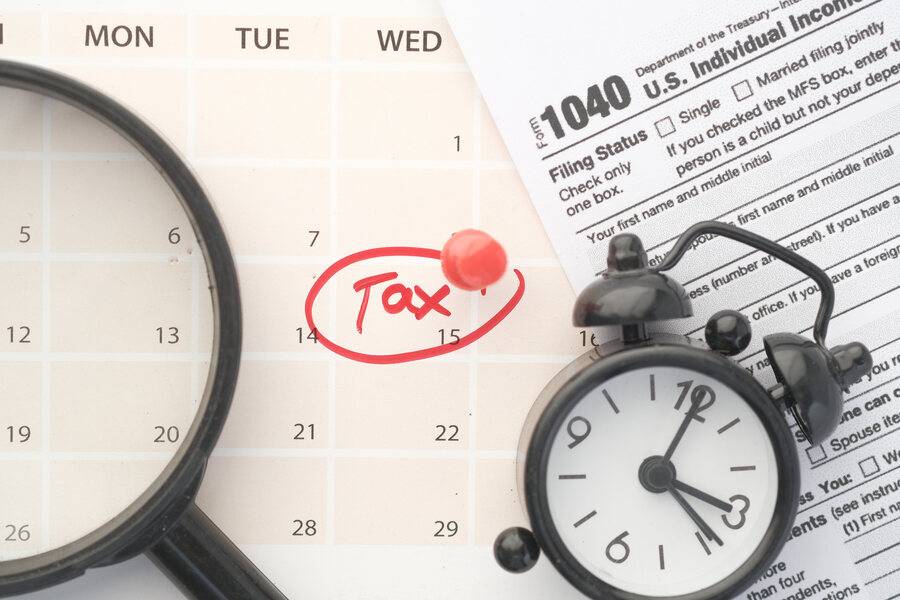Tax season is here, and 2025 looks to be just as busy as ever. Whether you’re an individual doing your taxes or an accountant preparing for a flood of clients, it’s critical to be organized and informed about what’s coming up. Let’s go over all you need to know about tax season software, how to prepare for IRS tax filing season, and the resources you can use to make the process as simple as possible.
Understanding the Fundamentals of Tax Season
What is Tax Season?
Tax season is the period of year when individuals and businesses submit their tax returns to the government. Typically, irs tax filing season begins in January and ends in mid-April. During this period, taxpayers can submit their income, expenses, and deductions to the IRS or other tax authorities.
Why is Tax Season Important?
Filing taxes is not only a legal requirement, but it also provides an opportunity to evaluate your financial situation, claim deductions, and ensure you are in compliance with tax legislation. Failure to file or miss deadlines can result in penalties and interest, so remain on top of your tax duties.
Key Dates for the Tax Season 2025
When Does the Tax Season Start?
For the 2025 tax season, the IRS is slated to begin taking returns in mid to late January. This is the date you can begin submitting your tax return, whether you file online or with a tax expert.
When Does the Tax Season End?
IRS Tax filing season typically concludes on April 15, but in 2025, this date may be extended if it comes on a weekend or holiday. Keep a watch out for IRS announcements regarding potential adjustments to deadlines.
Types of Tax Returns:
Individual Tax Returns
The majority of individuals are familiar with individual tax returns. These are the returns that salaried workers, freelancers, and self-employed people file. They include earnings from salaries, investments, and other sources.
Business Tax Returns
Businesses, large and small, must file tax returns. These files are more complex, addressing business revenue, costs, payroll taxes, and any appropriate deductions.
Preparing for Tax Season 2025
Organizing Financial Documents
The secret to a successful tax season is planning. Gather all relevant financial documents before beginning the filing process. This will save you time and limit the possibility of mistakes by preparing well for tax season.
Collecting W-2s and 1099s
If you are an employee, your W-2 form will include your wages and taxes paid. Freelancers and contractors frequently receive 1099 forms that detail revenue earned outside of traditional employment.
Documenting Deductions and Credits
Keep accurate records of any deductions or credits that you intend to claim. This contains receipts for philanthropic contributions, medical bills, and educational costs.
Advantages of Using Tax Season Professional Software in 2025-
Tax software has recently emerged as a significant tool for both individuals and accountants. These tools make the filing process easier by guiding you through each step, assuring correctness, and even discovering potential deductions you may have overlooked.
Popular Tax Software for Accountants.
TurboTax, QuickBooks, Drake, Thomson Reuters UltraTax CS, H&R Block, and TaxAct are among the most popular tax season professional software for 2025 that can also be hosted on the cloud platform. These solutions are designed to manage both individual and business tax files, and they frequently link effortlessly with accounting software such as QuickBooks. The accountants generally prepare for tax season by choosing the best hosting provider before irs tax filing season.
Accountants & Tax Season:
How Accountants Can Prepare for the Tax Season?
Accountants encounter particular hurdles during the tax season. With several clients to manage, time becomes a valuable commodity. The secret to staying on top of everything is to begin early and stay organized. Using client management tools can help you keep track of deadlines and ensure that nothing falls through the cracks.
Accountants face challenges during tax season.
Accountants face a variety of problems throughout tax season, including last-minute filings and complex tax codes. Keeping up with the current tax legislation and having the correct tools on hand can greatly reduce the strain.
Tax Deductions and Credits for 2025: Standard vs. Itemized
One of the first decisions you’ll have to make when filing your taxes is whether to use the standard deduction or itemize your deductions. The standard deduction is a fixed amount determined by your filing status, but itemizing allows you to claim particular deductions such as mortgage interest and medical expenditures.
Popular Credits To Consider
Tax credits are another option to lower your tax liability. Popular credits for 2025 include the Earned Income Tax Credit (EITC), the Child Tax Credit, and tax breaks for energy-efficient home upgrades.
Post-Tax Season Steps:
What Happens After I File Taxes?
After you’ve filed your taxes, the IRS will review them. If everything checks out, you will either get a refund or owe money. Refunds are usually provided within three weeks if you file electronically and choose direct deposit.
Working with Audits and Reviews
Nobody wants to think about audits, yet they are a reality for some taxpayers. If you are selected for an audit, you must have all of your paperwork in order. Respond to the IRS as soon as possible and, if necessary, consult with a tax specialist.
How OneUp Networks Simplifies Tax Season?
OneUp Networks may make a significant difference for accountants throughout irs tax filing season by providing dependable and secure cloud-based application hosting. With tax season approaching, accountants require immediate access to crucial tax tax season professional software such as QuickBooks, UltraTax CS, and other financial tools that can be hosted on the cloud under OneUp Cloudscape.
- Accountants can enjoy 24/7 access to their software from any location by hosting these apps on OneUp Networks’ cloud platform
- Eliminating the need to maintain local servers.
- This adaptability enables more cooperation, faster data processing, and improved security thanks to built-in data encryption, backup solutions, and cybersecurity capabilities.
- Accountants may easily handle the increased activity during tax season by scaling resources as needed, ensuring their customers’ financial records are well-managed and in compliance with tax rules.
How OneUp Networks Provides Security and Efficiency?
In an era of increasing data breaches and cyber-attacks, security is critical, particularly when dealing with sensitive financial information. OneUp Networks provides top-tier cybersecurity protocols to safeguard your information. Accountants that host tax apps on their cloud platform can benefit from numerous layers of security, including firewalls, intrusion detection systems, and regular security assessments.
Furthermore, OneUp Networks offers automated backups to ensure that no data is lost, even in the event of a system breakdown. With disaster recovery options in place, you can be confident that your data is secure and can be recovered swiftly if needed. This not only assures compliance with industry requirements, but also gives you piece of mind throughout the frantic tax season.
Streamline Collaboration with Cloud Hosting-
One of the primary benefits of cloud hosting is the ability to collaborate effortlessly. During tax season, accountants frequently need to collaborate with their clients and colleagues working on same software. Multiple team members can use OneUp Networks’ cloud hosting to access the same files and applications at the same time, allowing for real-time collaboration. Whether you work from the office, from home, or on the go, you can simply exchange data, make modifications, and communicate without delay.
This improved teamwork results in shorter turnaround times and greater efficiency, which is critical when tax deadlines are approaching.
Scalable Solutions for the Busy Tax Season-
Tax season brings its own set of issues, most notably a sudden increase in workload. OneUp Networks provides scalable cloud hosting solutions with tax season software, which allow you to effortlessly scale up your server resources during peak periods and down when demand drops. This flexibility ensures that you are not overpaying for resources that you do not want, while yet having the ability to handle enormous amounts of data and sophisticated calculations during the busiest time of year.
The scalability of OneUp Networks’ hosting solutions allows accountants to manage their workload efficiently without worrying about server failures or delayed performance, especially when time is of the essence.
Conclusion
Tax season does not need to be stressful. Whether you are filing on your own or with an accountant, preparation is essential. Keep your records structured, use the appropriate tools, and keep track of crucial deadlines. OneUp Networks’ cloud hosting services go a step further, providing accountants with the flexibility, security, and efficiency required to meet the high demands of tax season. With 24/7 access, scalable resources, and top-tier security features, OneUp Networks keeps accountants ahead of the competition, allowing them to focus on what they do best—serving their clients.
FAQs
When is the last day to file taxes in 2025?
The deadline for most people to file their taxes is projected to be April 15, 2025, but check for any extensions.
Do I need an accountant to file my taxes?
Not necessarily. Many people can file their taxes with software, but hiring an accountant might be beneficial if you have a complicated financial position.
How can I escape a tax audit?
While there is no guarantee that you will not be audited, completing accurate forms, keeping good records, and avoiding excessive deductions will help.
What if I file my taxes late?
If you submit your taxes late without an extension, you may be penalized and charged interest on any unpaid taxes.
What documents should I prepare for tax season?
You will need income forms such as W-2s or 1099s, deduction records, and receipts for any tax credits you intend to claim.
How can cloud hosting help accountants during tax season?
Cloud hosting gives accountants 24/7 access to tax programs, improves cooperation, and provides scalable resources to handle the increased burden during irs tax filing season.
Which security features does OneUp Networks provide for accountants?
OneUp Networks provides superior security through data encryption, firewalls, intrusion detection, automatic backups, and disaster recovery solutions.
Can OneUp Networks support real-time collaboration?
Yes, OneUp Networks’ cloud hosting enables numerous team members to access the same files and applications at the same time, ensuring seamless and efficient collaboration.
How does cloud hosting increase efficiency during tax season?
Cloud hosting enables accountants to handle greater workloads quickly while avoiding server slowdowns or failures while using tax season software.
How easy is it to scale resources with OneUp Networks during tax season?
Absolutely. OneUp Networks offers scalable solutions that enable accountants to add or decrease server capacity based on their demands during tax season, assuring cost-efficiency.














